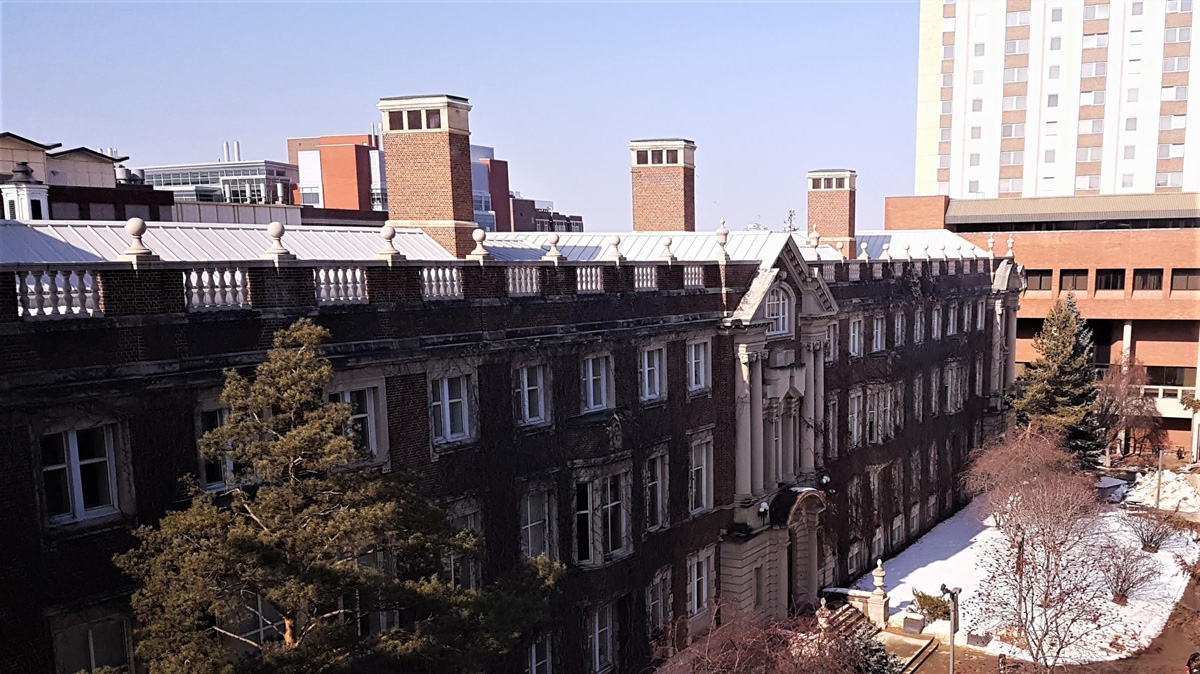Board of Governors approves 2021-22 budget amongst provincial budget cuts
Read up on next years budget and how the university adapted to provincial budget cuts
 Haley Dang
Haley DangThe Board of Governors, the highest decision-making body at the University of Alberta, has approved the 2021-22 budget which has accounted for large cuts in provincial funding.
At the March 12 Board of Governors (BoG) meeting, members approved the U of A’s 2021-22 budget. This approval occurred following the 2021 provincial budget, which cut overall post-secondary funding by $135 million. Translated to the U of A, this meant an 11 per cent cut in provincial funding, which amounts to a $60 million decrease in the university’s provincial funding for operations.
Prior to the provincial budget, the U of A unveiled the 2021-22 budget which anticipated a 9.7 per cent cut in provincial funding instead. Alongside provincial cuts, the budget also highlights a $5 million decrease in the university’s investment income.
To offset some of the cuts, the university is accounting for $29 million in tuition due to tuition increases. According to Todd Gilchrist, vice-president (university services and finance), his department is re-directing $5 million from maintenance back to the operations of the university.
The university was able to re-direct that $5 million due to higher Infrastructure Maintenance Program funding from the government, at $48 million. This fund is used to address regular and deferred maintenance on campus.
The rest will translate to approximately three per cent cuts for faculties and a seven per cent for administrative units, who already saw an 8.3 and 12.8 per cent decrease last year, respectively. These cuts will be implemented by Service Excellence Transformation (SET), which is in charge of administrative restructuring.
Other major aspects of the budget such as tuition or residence and meal plan rates remain the same as when first tabled in February.
According to Gilchrist, it’s because of the cuts and administrative restructuring the university has undertaken this year that they were able to keep the budget mostly the same after the provincial cuts were announced.
“None of this is easy and it’s only been through the hard work and significant reductions we’re driving that we’ve been able to reach these goals,” Gilchrist said.
“It’s this proactive and conservative approach that allowed us to respond to the additional $7 million reduction without having to make, what I’ll consider, drastic changes to the budget that had been initially tabled.”
Glichrist said that this budget is part of the university’s goal to decrease operating expenses by $170 million in the current fiscal year, to an overall decrease of $240 million over four years.
The overall consolidated budget passed with only three votes in opposition.
Tuition, MNIFs, residence and meal plan rates increase
Though the same as the initial 2021-22 budget tabled in February, tuition, residence, and meal rates will all see an increase next year.
In terms of tuition, domestic undergraduate and graduate course-based students will see a seven per cent increase, which is the maximum increase in tuition the provincial government set during its 2019 budget.
Thesis based graduate students will also see a seven per cent increase but the university is implementing a rebate that will bring the increase down to 2.67 per cent.
Steven Dew, provost and vice-president (academic) explained the rebate acknowledges the unique situation of graduate students.
“We have put in place for existing [graduate] students a rebate program to help accommodate the fact that they entered their program and had support levels that were negotiated before the seven per cent [increase] came into play,” he explained. “We’re trying to protect them from those unplanned increases as grad students must make a long-term commitment.”
According to Dew, the rebate will be in place for four years.
For international undergraduate students and graduate course-based students admitted to the U of A prior to 2020, tuition will be increasing by four per cent. International thesis-based graduate students will see a seven per cent with the same rebate.
International students admitted after 2020 will continue to pay tuition based on their program based cohort and future tuition cohorts will be decided by the board later on.
Dew explained that the increase on international tuition is less drastic than domestic tuition, because international students were not privy to the previous tuition freeze.
Alongside tuition increases, the university has set aside 15 per cent offset of tuition revenue towards needs-based financial support for domestic students. For international students, this offset will be 7.55 per cent.
“[This reflects] that as tuition increases significantly, we do expect to see some individuals struggling to financially meet their bills, so putting aside more dollars to support those individuals is part of the plan to make sure that finance is not a barrier to access into the post-secondary system,” Dew said.
Mandatory Non-Instructional Fees (MNIFs) will increase by 1.6 per cent this year with a special $1.50 increase that will go towards hiring a Sexual Violence Prevention Coordinator, which is a position the Students’ Union vice-president (student life) Katie Kidd has been pushing for this year.
All residence rates will be increasing by five per cent next year. This is the third and last five per cent increase, which started in 2018. After next year, residence rates will increase by consumer price index (CPI).
Meal plan rates will also increase by 2.5 per cent. The university is also looking to get rid of the “flex dollars” aspect of the meal plan, which usually has students pay $300 dollars which are loaded onto their OneCard.
With the elimination of flex dollars, a seven-day meal plan amounts to $5,059 and a five-day meal plan amounts to $4,416. This means that despite the increase in meal plan rates, seven and five-day meal plans will be $201 and $213 cheaper respectively.
Student leaders remind BoG of students behind the numbers
All three votes against the 2021-22 budget came from the student representatives sitting on the board: Students’ Union president Joel Agarwal, the Graduate Students’ Association president Marc Waddingham, and Board of Governors Representative Dave Konrad.
Konrad was also the only member opposed to the capital plan as it failed to include Maskwa House.
In his speaking term, Agarwal reminded the board that budget is not only a series of numbers, but have an implication on students’ lives.
“I have seen a lot of struggle from students over the past couple of years particularly in the past year,” he said. “[Campus] Food Bank usage is record high this year and the bottom line is that this is a huge financial burden and students are struggling across the board.”
Agarwal then went on to describe the types of struggles he’s heard from students, such as taking on multiple jobs to pay their tuition or having to transfer schools because they could no longer afford tuition at the U of A.
Though the university is continuing to put aside money for financial aid, Agarwal said it isn’t enough.
“I want to give credit where credit is due,” he said. “Seeing the 15 per cent set aside for student financial aid is something that we’re grateful for, ” he said.
“But at the same time, I want to say that there is a lot more that we can be doing, I dont think that’s enough. I think we need to be more creative in ways we can support the most vulnerable students on our campus and the additional challenges students are facing, especially because of this pandemic.”
He went on to propose that the board consider to allocating excess tuition revenue not accounted for in the budget towards student financial aid or programs benefitting students, which is something he has talked about at previous BoG committee meetings.
Waddingham said that if the university continues on this path, then the university needs to recognize the negative impacts that will naturally follow, such as lower rankings and impacts on the student experience.
Waddingham also touched on the graduate student experience by mentioning an amendment that, similar to Agarwal, he made at previous BoG committee meetings which includes extending the rebate to graduate students who received admission this year. He said that the university reasoned that this would not be fair.
“At Academic Planning Committee, [it was] admitted this did not represent a monetary necessity for the university, but it was a doctrine of fairness,” he said. “All I can say is I don’t how fair it is that one in five of my members are expected to use the Campus Food Bank [and] that’s going to include some proportion of children of my membership, that we have a mental health crisis… that these factors are exacerbated by the COVID crisis.”
Waddingham went on to talk about how student debt can prevent students from buying houses and starting families, and emphasized that the university should consider what student debt means to the province as a whole.
“I understand at the end of the day when we look at them, these are numbers on a page and they’re bottom lines, but that’s not what it really means,” he said. “If we don’t take that into account… we will lose and sacrifice that that makes us special… we are a university.”
“We are supposed to look towards the future, we are supposed to develop and advocate for a more just, advanced society.”
Konrad brought forward the concerns about the quality of students educations amongst increases in tuition.”
“There is the criticism that as we see tuition increases, we are still seeing a fall in the global rank of this institution,” he said. “I understand there are financial trade-offs at play here, but I know that students would be comforted to see an increase in ranking indicated by an increase in experience and education.”
He then shared a quote that resonated with him about the lack of overall student experience.
“Students aren’t paying for university, they’re paying for a degree,” Konrad said. “That experience that we pay for needs to be recognized. I understand COVID has taken that from us to some extent, but that fulsome experience needs to be considered when we’re thinking about the budget.”



